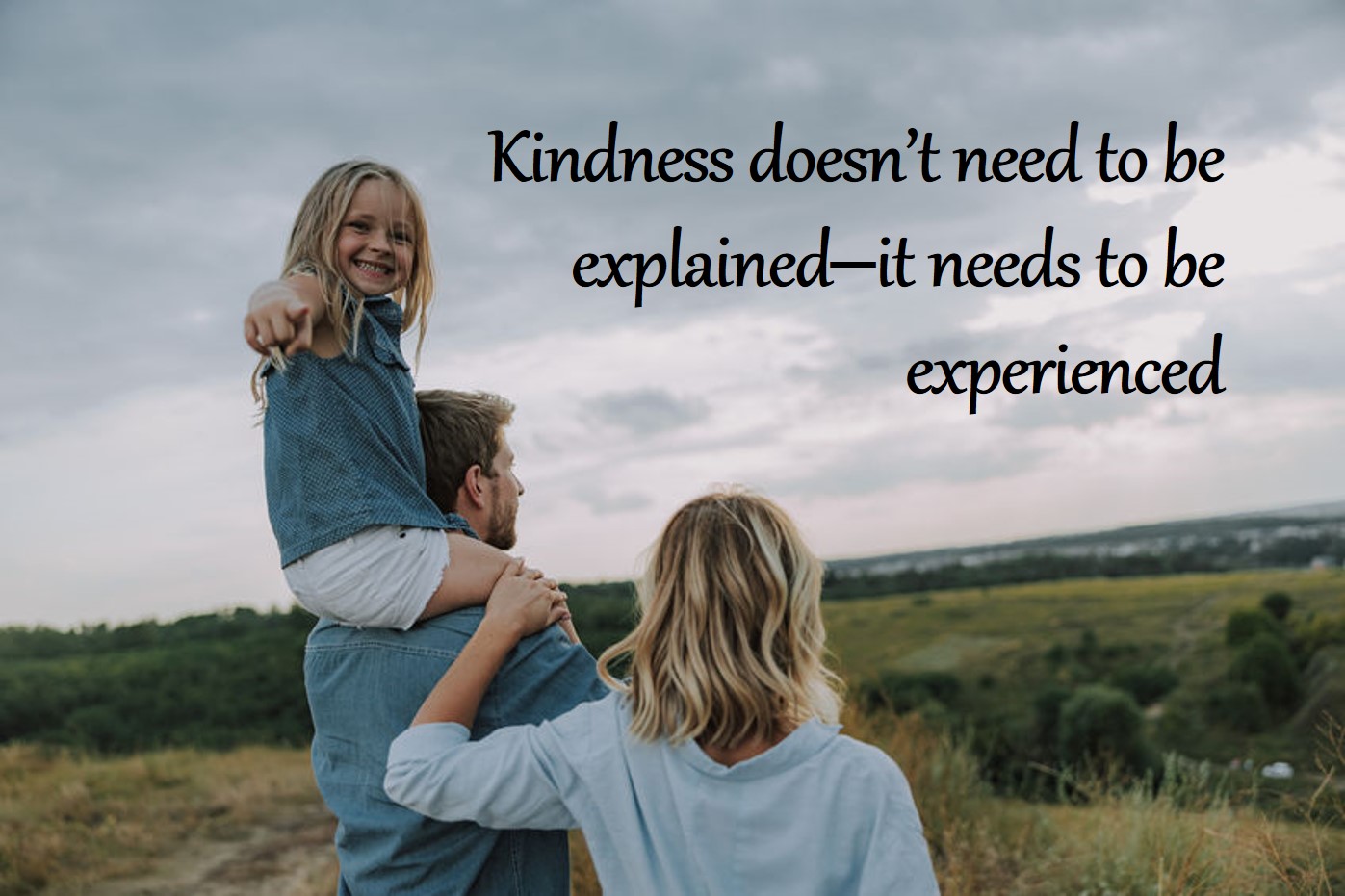Be ye kind one to another. Ephesians 4:32
Do you notice anything unique about the truths in Ephesians 4:32: “Be ye kind one to another”? Two things seem obvious to me. First, nothing in this verse is necessarily deep. It is simple. Kindness requires us to humble ourselves. Kindness enables us to encourage and edify. This is so simple that all of us likely already know it. Practicing it may be another matter, but the truth itself is pretty simple. Second, this verse, like many of the topics in this book that relate to having a happy family, can be connected to our tongues. Honesty deals with words. Anger deals with the tongue and usually manifests itself verbally. Reconciliation requires words, and so does edification. Like these other qualities, kindness is connected to our words.
Each year my wife, Bethlie, and I attempt to read at least one or two marriage and family books. We read them together—not out-loud together but at-the-same-time together. Then we go on a date or sit down with a cup of coffee and talk about them. Recently I read two statements that intrigued me. One author cited a family psychologist and marriage counselor who stated that when couples begin to show contempt to one another, the marriage is in serious trouble. Another stated that between how we treat strangers and how we treat our own spouses, “married couples are far less polite with each other.” That is startling.
One of the areas in which we fall short of attaining a happy Christian family is treating each other with kindness. The word “kind” in Ephesians 4:32 is a rich word. It comes from a root word that is translated several ways in our English Bible. It is used in Acts 27:3 when “Julius courteously entreated Paul, and gave him liberty to go unto his friends to refresh himself.” It is translated by the word “helps” in Acts 27:17 and by the word “use” in several other passages. The Greek word can mean employed, useful, gracious, or kind. Taken together, these meanings for the word “kind” give the sense that we are to make it our job to be useful and gracious to those around us. Yet if we treated our bosses or fellow employees in the same way we treated our family members, how well would we be doing? Many times not very well!
Kindness doesn’t need to be explained—it needs to be experienced. This is likely part of what Jesus meant when He said we should do unto others as we would have them do unto us (see Luke 6:31). Kindness is the heart of the golden rule. We all want to be treated kindly. In fact, we demand to be treated kindly and will stay away from people who treat us otherwise. If a person is rude or condescending, we stay far away from them. Years ago, when I first began scheduling revival meetings, an older preacher told me privately that I should never schedule a meeting with a preacher who was not a gentleman. Another told me to beware of a man who kowtows (kisses up) to his superiors but is rude to his inferiors. Both pieces of advice were birthed out of the truth that we should be suspect toward a person who is not kind.
Kindness is experienced in how we treat others. God’s Word is filled with admonitions to treat others properly: Be gentle and gracious and loving. Be sweet. Be respectful. As parents, we can easily point out the importance of these matters to our children. Sometimes, however, it is easy to forget that these commands are just as important for us as adults. Are we sweet in the way we treat our spouses? Are we gentle in the way we respond to our children? Are we kind when our children can’t find their shoes or are slowing us down? Kindness is revealed when we are patient and considerate. Our children may very well slow us down or lose their shoes at the most inopportune times. Our spouses may not listen as well as they should or may be inconsiderate in some way. We are still to treat them with kindness, patience, love, gentleness, sweetness—and undeniable love!
Kindness is experienced in how we respond to others. How we treat people and how we respond to them are similar, but they are two different matters. How we respond when others irritate us will reveal whether or not we are kind. We are not to respond in kind but are to be kind! Even if our spouses are distracted or grouchy, we can be kind. Earlier in Ephesians Paul taught that we should be “forbearing one another in love” (4:2). We should be tolerant of our spouses’ failures and idiosyncrasies and even learn to find them endearing, and our responses should reveal that we do. That is kindness.
We should smile often at each other. We should defend each other. We should meet each other’s needs. Our responses will enable our family members to experience kindness.
Action Points
- Do you demand more kindness from your children than from yourself?
- What changes could you make this week that would help your family experience kindness?
- In what ways could you help your children see kindness in you?
This chapter was written by Evangelist Dave Young.

This chapter is taken from our book “Home Improvement- Keys To Building A Happy Home“. CLICK HERE to learn more about this book and to place your order.




